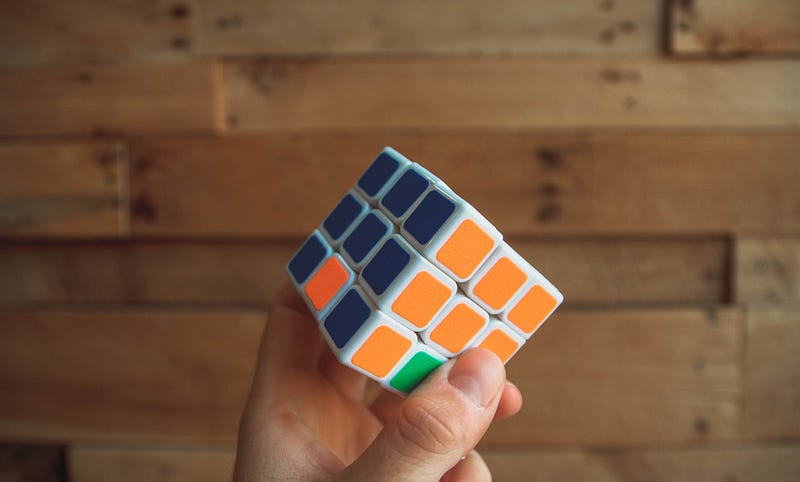Strengthening your mind helps drive your brain to gain fresh facts as well as flesh out newer ways of thinking that will make any knowledge gained more beneficial. Learning to solve problems effectively depends on how much undiscovered knowledge you have stored up in your brain.
Brain Games often apply mathematical strategies that would help your mind develop the ability to think logically and laterally. This definitely makes problem solving an easier task. Your homely sense, ontology and science will push your psyche, thereby pushing you to increase your IQ.

You really do not have time to waste, seeing that your mind can quickly reach its limits this way.
How Do Puzzles Work?
A puzzle is a game, problem, or toy that tests a person’s ingenuity or knowledge. In a puzzle, the solver is expected to put pieces together in a logical way, in order to arrive at the correct or fun solution of the puzzle. There are different genres of puzzles, such as crossword puzzles, word-search puzzles, number puzzles, relational puzzles, or logic puzzles.
Puzzles are often created to be a form of entertainment but they can also arise from serious mathematical or logistical problems. In such cases, their solution may be a significant contribution to mathematical research.
To be quite honest, many of the puzzle games found online, especially the free ones, can be quite confusing. You’re giving a short description of some ongoing action, and you have to answer the question. Some of these puzzles also offer free online personality tests.
I encourage taking these tests, as they can help you understand who you truly are. This, in turn, will help promote the learning culture within you.
The Oxford English Dictionary dates the word puzzle (as a verb) to the end of the 16th century. Its earliest use documented in the OED was in a book titled The Voyage of Robert Dudley…to the West Indies, 1594–95, narrated by Capt. Wyatt, by himself, and by Abram Kendall, master (published circa 1595).
The word later came to be used as a noun, first as an abstract noun meaning ‘the state or condition of being puzzled’, and later developing the meaning of ‘a perplexing problem’. The OED’s earliest clear citation in the sense of ‘a toy that tests the player’s ingenuity’ is from Sir Walter Scott’s 1814 novel Waverley, referring to a toy known as a “reel in a bottle. “
The etymology of the verb puzzle is described by OED as “unknown”; unproven hypotheses regarding its origin include an Old English verb puslian meaning ‘pick out’, and a derivation of the verb pose.
Genres
Various puzzles
Puzzles can be divided into categories. For example, a maze is a type of tour puzzle. Some other categories are construction puzzles, stick puzzles, tiling puzzles, disentanglement puzzles, lock puzzles, folding puzzles, combination puzzles, and mechanical puzzles.
● A chess problem is a puzzle that uses chess pieces on a chess board. Examples are the knight’s
tour and the eight queens puzzle.
● Jigsaw puzzles.
● Lateral thinking puzzles, also called “situation puzzles”
● Mathematical puzzles include the missing square puzzle and many impossible puzzles
— puzzles which have no solution, such as the Seven Bridges of Königsberg, the three cups problem,
and three utilities problem.
● Mechanical puzzles such as the Rubik’s Cube and Soma cube
● Metapuzzles are puzzles which unite elements of other puzzles.
● Paper-and-pencil puzzles such as Uncle Art’s Funland, connect the dots, and nonograms.
● Also the logic puzzles published by Nikoli: Sudoku, Slitherlink, Kakuro, Fillomino,
Hashiwokakero, Heyawake, Hitori, Light Up, Masyu, Number Link, Nurikabe, Ripple Effect, Shikaku, and Kuromasu.
● Peg solitaire
● A puzzle box is a puzzle that can be used to hide something — jewelry, for instance. Rubik’s
Cube and other combination puzzles can be stimulating toys for children or recreational activities for adults.
● Sangaku (Japanese temple tablets with geometry puzzles).
● Sliding puzzles (also called sliding tile puzzles) such as the 15 Puzzle. Puzz-3D is a three-dimensional variant of this type.
● Sokoban
● Spot the difference.
● Tangram
● Word puzzles, including anagrams, ciphers, crossword puzzles, Hangman (game), and word search puzzles. Tabletop and digital word puzzles include Bananagrams, Boggle, Bonza, Dabble, Letterpress (video game), Perquackey, Puzzlage, Quiddler, Ruzzle, Scrabble, Upwords, WordSpot, and Words with Friends. Wheel of Fortune (U.S. game show) is a game show centered on a word puzzle.

Leave a Comment
Post a Comment